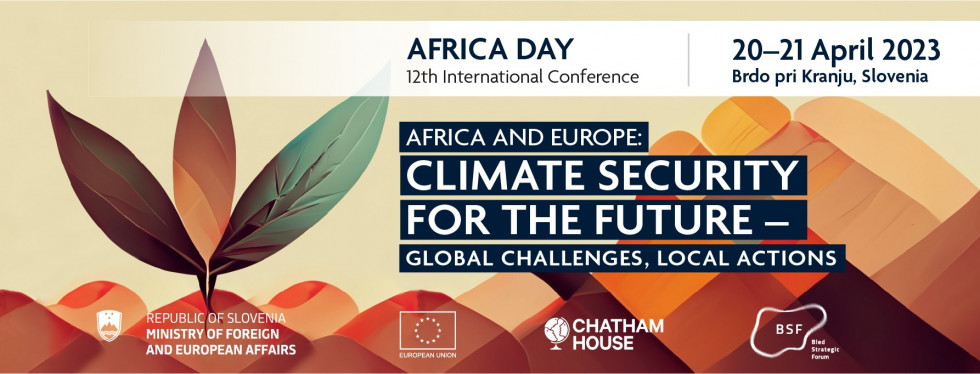Africa Day 12th International Conference: Climate Security for the Future
The Minister for Foreign and European Affairs, Tanja Fajon, opened the Africa Day 12th International Conference, which this year is being held under the theme “Africa and Europe: Climate Security for the Future – Global Challenges, Local Actions”. More than 350 participants from Slovenia and Africa will attend the two-day conference, which will include a varied cultural programme in addition to the political and economic sessions.
In her opening remarks, Minister Fajon drew attention to the devastating consequences of the climate crisis, which call for fundamental changes: “If any issue can be called a global challenge, it is surely the consequences of climate change, which makes us all feel small and vulnerable. At the same time, climate change is also an opportunity to forge new partnerships and renew existing ones. As a small country, it is crucial for Slovenia to build partnerships around the world and for our foreign policy to be guided by solidarity and respect.”
In her address, the minister also stressed the importance of transfer of knowledge between partners, technologies and innovations in the fight against climate change, as well as the need to involve women and young people in policy-making and climate action. “Young people are our future, their numbers are growing and they all have the right to live in prosperity and with dignity. If we do not provide them with this, we are literally forcing them to look elsewhere for a brighter future," the minister added.
The traditional conference has a special significance for Slovenian diplomacy this year, as it takes place a few weeks before the UN vote that will decide whether Slovenia will be a non-permanent member of the UN Security Council for the period 2024–2025. It is in Africa that Slovenia and Belarus have been competing for votes lately.
The two-day conference brings together decision-makers and experts from Slovenia, Europe, Africa and other parts of the world. They discuss the challenges posed by climate change and consider measures to deal with its consequences.
Foreign Minister Tanja Fajon was joined on the panel by the Foreign Ministers of Chad, Comoros, Gambia, Ghana, Libya, Malawi, Rwanda, and Uganda. The U.S. Special Presidential Envoy for Climate, John Kerry, welcomed the participants with a pre-recorded address.

